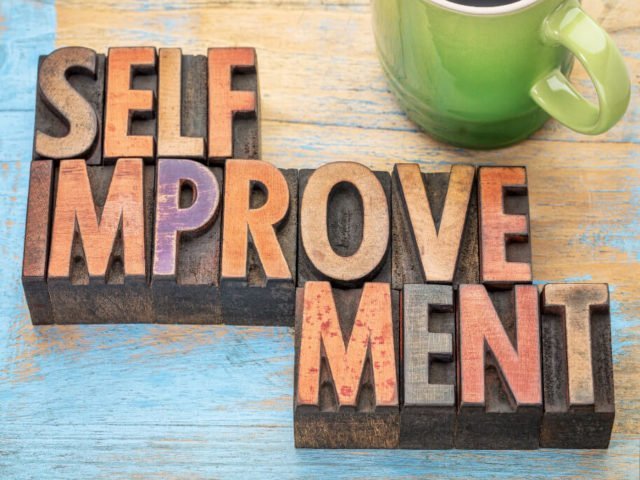Mahatma Gandhi famously said, “Live as if you were to die tomorrow. Learn as if you were to live forever.”
Many people need no encouragement to learn and will continue to do so throughout their lives.
Events can create a demand for self-help books too. While the Covid pandemic brought much misery, books in the self-help genre gave readers a greater sense of agency.
According to Nielson Book Research, there has been a rise of 20% in the sales of ‘self-improvement’ books as anxious readers have turned to popular psychology and self-help titles.
But self-help is not limited to psychological development. Books in this huge genre can also help readers fix their cars, bake cakes, or better understand their cats. The breadth is unlimited.
So, there’s a market for learning, and you have a hunger to tap into it with your own self-help book.
I’ve written several great-selling works myself and have supported countless self-help authors as they developed their own.
In this article, I’ll gather together a wealth of experience to give you everything you need to know about writing a fantastic self-help book, including:
- Knowing what your book is about
- Knowing your reader
- Knowing your own – and the reader’s – expectations of the book
- Finding your voice
- Developing a structure
- Knowing and fulfilling the self-help author’s role
What Is A Self-Help Book?
In 1859, Samuel Smiles wrote what is often cited as the world’s first self-help book, called, unsurprisingly, Self Help. It promoted the importance of self-development.
Its huge popularity encouraged countless writers from Mrs Beeton onwards to provide readers with the necessary instruction to solve problems or to self-improve.
And that’s what any self-help book must succeed in doing. The outcome for your reader must be that they have changed for the better.
Examples Of Self-Help Books
You’ve probably seen the successful For Dummies books.
A casual study of the long list of titles in the series demonstrates what people want to learn more about, from ‘LinkedIn Profile Optimisation’ to ‘Rugby Union Basics’. This proves that there is always someone out there who wants to learn something new.
This is both good and bad news.
Good, because there will probably be a market for your own specialist topic.
Bad, because there will be competition.
So, how to differentiate?
Let’s take a look at some great examples of self-help books and understand what makes them remarkable.
The Subtle Art of Not Giving A F**k By Mark Manson
In his ground-breaking book, Manson achieves many things in his pursuit to help his readers lead more contented lives, but here are three big takeaways for upcoming self-help authors.
First, the title draws you in. It’s instantly engaging because it’s profane. It’s risen above the thousands of other wannabes by punching us in the face. Of course, it’s got to be good beyond the front cover, so…
Second, it’s a book that’s written in a truly authentic voice. As a prolific blogger, Manson has developed a way of communicating which is clear, authoritative and authentic. We trust him because, like any good salesperson, he persuades us. He maintains his profanity throughout, but with a purpose in mind: to shake us out of our stupor. And he needs to do this because…
Third, his subject matter – anxiety – is already a familiar topic. There are thousands of books on the subject. Manson succeeds by finding a new angle. By challenging conventional wisdom, he engages his readers and differentiates his book from the competition.
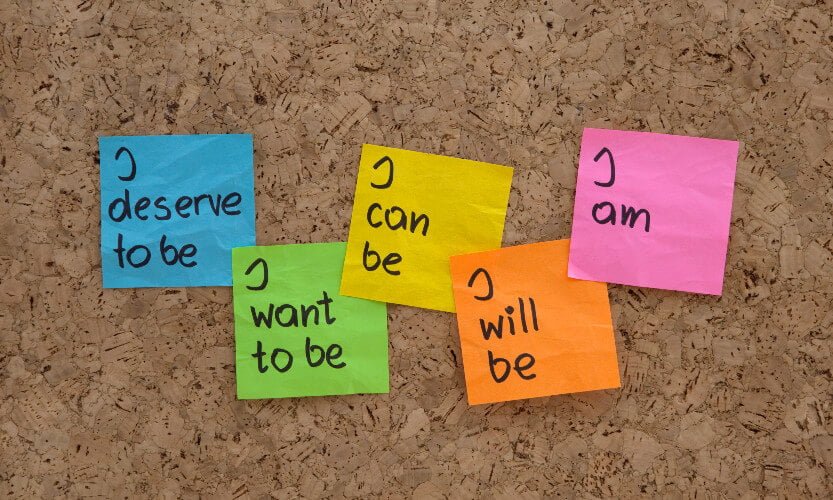
Mrs Beeton’s Book Of Household Management By Isabella Beeton
First published in 1861, Beeton’s book was not the first to bring together many aspects of home economics, management and cookery.
However, it succeeded by helping aspiring Victorian middle-class housewives to address two basic, human instincts: to feel confident that they could feed their families, and to successfully compete with the neighbours.
Furthermore, it furnished them with the skills and knowledge to do so.
How To Win Friends And Influence People By Dale Carnegie
Just like Mrs Beeton, Dale Carnegie addressed another essential need: to create an environment within which we are influential and liked.
What’s interesting about this book is its clear focus on the outcome and the provision of instructions. It’s a genuine ‘How-to…’
The 7 Habits Of Highly Effective People: Powerful Lessons In Personal Change By Stephen R. Covey
There’s plenty to learn from this great self-help book.
First, Covey has, like Carnegie, promised an outcome: personal change.
Second, the scope is helpfully contained: seven things can’t be hard to learn, and there’s the message that if we adopt these practices, we’ll achieve the promised outcome.
Best of all, there’s the reference to a benchmark – highly effective people are already doing these things. It’s the ‘fear of missing out’ which plays on our aspirational and competitive streaks.
Screw It, Let’s Do It: Lessons In Life and Business By Richard Branson
Amongst Richard Branson’s many publications is this slim but characteristically engaging self-help volume in which the author shares his own unique practices and behaviours.
The book is largely autobiographical. I’ll have something cautionary to say about this later, but it works here because Branson shares his wisdom.
Rejection Proof By Jia Jiang
This book promotes an innovative approach to dealing with rejection. Although his own story of self-discovery is crucial, Jiang encourages self-help by providing a methodology which is relevant to the challenges faced by his readers.
So, while the book contains some autobiographical passages, they serve the main objective which is to assist the reader in dealing with rejection in their own lives.
Goal By Eliyahu M. Goldratt And Jeff Cox
This is a genre-busting book.
It takes the topic of a project which has to be managed and, instead of offering a ‘how-to’ process, settles the subject matter into the body of a fictional novel.
Not only do the authors find a unique angle into a familiar subject, but they also turn what could have been dry material into a page-turner. In doing so, the reader osmotically acquires knowledge rather than being obviously instructed.
Who Moved My Cheese? By Dr Spencer Johnson
This short story about two mice dealing with change has sold over 28 million copies.
Why?
There are several reasons, including the authority of the author, the fast pace and short length, and the playful nature of the story.
However, one of its greatest strengths is the author’s use of a metaphor to explain something complex.
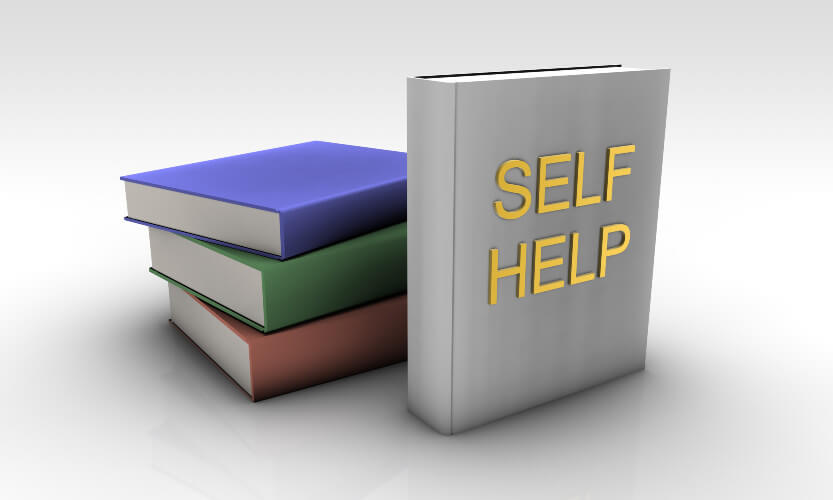
Men Are From Mars, Women Are From Venus By Dr John Gray
This classic book asks the reader to conjecture that men and women originate from different planets and approach their co-existence on Earth with wildly different attitudes to each other.
What sparkles is the originality of the proposition. Gray finds a way of articulating an age-old problem that affects both men and women: we have difficulty understanding each other. He goes on to provide a carefully considered explanation of the issues and, crucially, a language to facilitate dialogue towards happier relationships.
The book proves that a well-articulated problem is halfway towards an answer.
Can you be clear about what challenge your own readers face, and how your book offers a solution?
Save The Cat By Blake Snyder
This remarkable book provides the aspiring screenwriter with an insider’s insight into what makes a great movie script. The author is an acknowledged expert which helps the reader to trust the content. But better still, there’s so much to do!
This slim book succeeds by placing the reader at its heart. Snyder provides exercises which help them practice new ways of thinking and doing things.
By the end of the book, each reader will think it’s been written just for them.
The Prophet By Kahlil Gibran
Written in 1923, The Prophet has become one of the world’s most translated and best-selling books. Through 26 poetry fables, a fictional prophet shares his thoughts on a range of spiritual and practical matters which affect the human condition.
It’s not an instructional book, but the reader can develop and benefit from the book’s wisdom. And being poetic, it also has a lyrical quality which makes the process of reading (and re-reading) it so rewarding.
So, your own self-help book need not be a classic ‘how-to’ as long as you’ve got sufficient wisdom and experience to impart, and can do so in style.
How To Write A Self-Help Book
Self-help books cover a huge range of topics and their authors tackle their subjects in a range of diverse and creative ways.
Here are some key considerations when creating one of your own.
Identify A Clear Problem Or Opportunity That Your Book Must Address
Any successful self-help book is a solution to a problem or opportunity. Can you describe what obstacle your reader would like to overcome or an opportunity they would like to benefit from?
Only when you are clear on the answer to this question can you begin to assure yourself that your book will provide the solution.
In pitching to agents or publishers, this will be the topic that they focus on first. Even if you’re self-publishing, it’s important to know what kind of problems you want your book to target.
When you know the answer, it will be easier to describe what your book’s really about.
Determine A Clear Objective For The Book
Once you’ve got a book idea to use as a starting point, think about your goals for the book. Write them down and share them with some potential/beta readers. What outcome do you want your book to achieve?
Develop a title, sub-title and 30-word elevator pitch. (If you’re querying agents, this is also a good first step for your book proposal.)
For example…
Title: ‘Men Are from Mars, Women Are from Venus’.
Sub-title: ‘A Practical Guide for Improving Communication and Getting What You Want in Your Relationships’.
Elevator pitch: ‘Tells you all you need to know about members of the opposite sex and how to deal with them for positive, happy relationships’.

Compare Your Objective With The Reader’s Objective For The Book
What problems or opportunities do your readers face? What keeps them up at night? What can’t they do? What don’t they know? What outcome do they want from the book? What role will they expect or want to play in the book: an observer, a learner or an active participant?
Compare the reader’s expectations for the book with your own.
Amend your own objective until it meets your readers’, or identify a different target audience for your book.
Know What You Are Able To Share With Your Readers
It’s been said that we should write about what we know. When considering the development of a self-help book, I would go one step further.
You have the opportunity to share with your reader a combination of four important things: your knowledge, your skills, your experience and your personality.
The change in behaviour that your reader seeks won’t come from exposure to your knowledge or personality alone. They must practice new skills so that they build up their own experience. Your job is to help them do so.
If all you include in your book is what you know, you’ll create a reference book.
If all you write about is your personality, you’ll produce an autobiography.
So, by all means, share your knowledge and personality and include plenty of real-life examples, but give careful consideration to the inclusion of exercises and tasks which will develop the reader’s skills and experience and truly appeal to your target audience.
Decide How You Will Present The Material
What’s your angle? If you’re tackling a subject which is already popular, how will you approach it differently? What will make your book better or more appealing to a reader?
This is a question which will really start to matter when you’ve finished the book and are switching into sales mode and thinking about the book cover.
Knowing your angle will help you, and others, pitch your book.
What Is Your Role In The Book?
Which of the following roles will the reader most benefit from as their companion through their developmental journey?
Raconteur? Authority? Exemplar? Entertainer? Educator? Researcher? Curator? Counsellor?
Pick a few but not all.
Give serious consideration to the character you will adopt in the book.
Apart from helping your reader, it will aid you in finding a suitable authorial voice.
Practice And Settle On A Confident Authorial Voice
How will you address your reader? You may think it a trivial question, but your decision will have some significant consequences.
You could write in the first person. “I cooked my first sprout in 1967…” is fine if you’re a TV chef who readers want to emulate. It’s also great if you’re a celebrity who people want to know better. But this form of address can easily stray into the territory of autobiography where the book is about the author and less about the reader. We buy Branson’s books because we like him.
Did you see what I did in my last sentence? While using the pronoun ‘we’ creates a sense that your readers are in a classroom, it can also divide and exclude them. Not everyone likes Richard Branson but by assuming that they do, you’ve lost those readers who disagree with you. They may decide that your book isn’t for them anymore because you’ve misunderstood them and failed to accept that they are different.
So, as I’m doing here, you could settle on a second-person pronoun: you. This helps to create a closer, more personal relationship with the reader. It may also create a more explicit definition of your respective roles – teacher and student, for example.
Finally, you can play it safe with good old third person. That is, “Good old third person helps the author to play it safe.” Yes, it’s a bit robotic, but it’s an option which may suit the nature of your book and its intended readership.
Develop A Structure For The Material
To avoid staring at a blank screen for too long, plan the book’s structure.
How many chapters will there be? What will the content of each chapter be? In what order will they be best arranged? What will your chapter titles be?
This will help you to articulate what may be a complex subject area. It will also help the reader to see how their own journey of development is going to unfold.
Perhaps you can come up with a methodology which encapsulates the subject area of your book into an easy-to-remember structure.
Is there a model which visualises and simplifies the complexity of the subject matter? Are there ‘7 steps’ or a process which the reader can be encouraged to follow?
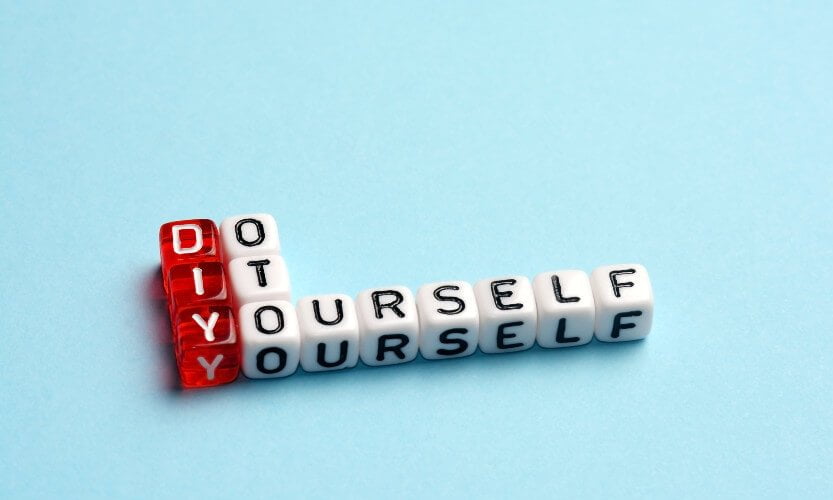
Develop A Clear ‘Reader Journey’
Think about your target reader and what you want their reading experience to be like.
Where does the reader’s personal journey begin? What will you ask them to do as they read the book? How will you guide them? How will they know that their journey has ended? Will it continue after they have finished reading? How will they embed new ways of thinking, speaking and doing things?
The reader of a self-help book should do more than merely read it – they must engage with it. They must invest something of themselves in the experience.
Whether this means that your readers understand what you’ve written and compare it to their own experience (e.g. Branson), or that they undertake exercises to practice a new skill (e.g. Snyder), your readers will be demonstrating the change in behaviour that any good self-help book is there to encourage.
Remember, your book will only help a reader when they can see it is focused on their own journey towards a more fulfilling life, so it’s important that your book appeals to them directly.
Understand Why You Are The Right Person To Write This Book
It’s easy to underestimate the responsibility that comes with writing a self-help book.
You will be asking your reader to trust your instruction in a form of personal development which may carry some risk. For example, you may encourage them to try something which affects their mental health.
Just as we would wish to assure ourselves of the qualifications of a doctor, plumber or pensions advisor, so too would we want to know that the author of a self-help book is worthy of our trust.
It may be helpful – and it will certainly be necessary – to include your credentials.
If you aren’t qualified to tell others how to think, act or speak, it isn’t the end of the world. You may still have a book inside you such as a memoir about your own journey of self-discovery.
Tips For Writing Self-Help
The writing process is often challenging, so here are some tips to guide you through the process.
Any repetition here is intended. Some things are worth saying twice.
- It’s not (necessarily) about you
- Some 60% of the self-help books that come my way for editing or consultation are largely autobiographical in nature. That is, they focus on the author’s own experience – the mistakes they made, the challenges they faced, and the solutions they implemented. Many infer a conclusion that the reader can succeed if they do as the author did.
- Before turning personal experience into a self-help book, ask yourself, “Do I want my readers to learn how I succeeded, or how they can succeed for themselves?” Unless the book specifically addresses their needs, the reader may well ask, “How is this book relevant to my own journey of self-improvement?”
- Engage the reader
- Not everyone who reads a book expects to invest in the experience. A cheap novel may help a reader pass the time on a train. A self-help book requires the reader to participate. Although you may find it tiresome to develop exercises for your reader, it may well be necessary. At the very least, recognise that your reader expects you to engage and activate something inside of them that causes them to change.
- Write authoritatively
- You may be an acknowledged expert. Great! Draw on your experience to demonstrate your authority. But if you’re not, don’t pretend otherwise; the reader will know when you’re winging it.
- Be honest with your reader. There’s telling and there’s teaching. They’re looking to you to help them learn new stuff. Whether your book’s about mental or emotional health, or re-building a 1968 MG Midget, your (hopefully practical) advice will have real-world consequences for your reader.
- Don’t try to teach what you don’t fully understand yourself.
- Be different
- Between 1966 and 2021, there were 16,581 publications on the subject of mindfulness. How do you find a new way of entering the field? What hasn’t been tried yet? Can you create a metaphor for the subject or present it as fiction? Can you create a methodology which articulates something familiar in a more easily consumed way? Can you condense or expand the topic? Can you identify the outcomes that your readers really want to achieve by studying it? Can you teach the subject better than anyone else?
- Prepare
- It’s too easy to begin writing a self-help book without first giving thought to the big questions I have posed throughout this article. Don’t write any content until you’ve properly prepared. Settle on a clear objective that suits your own ambitions and those of your readers. Develop a structure. Familiarise yourself with the authorial voice you intend to use. Complement your own knowledge with research.
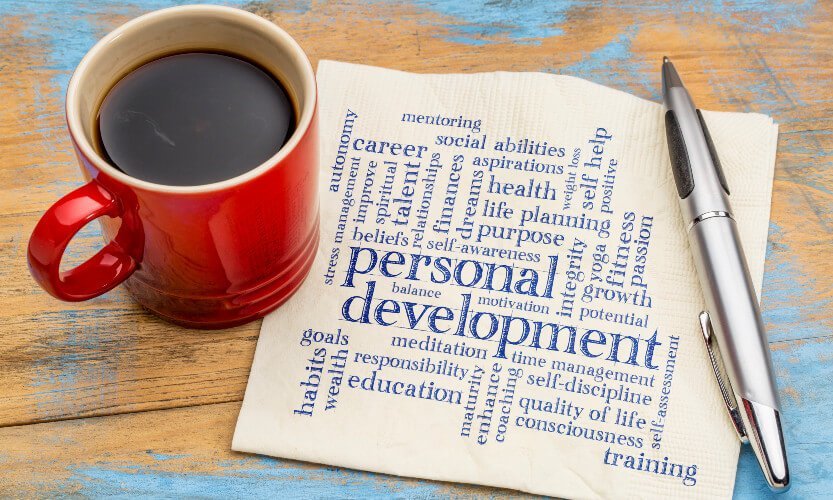
Frequently Asked Questions
Can Anyone Write A Self-Help Book?
There are only two essential qualifications to write a self-help book. First, you must have expertise in a subject matter about which others want to learn. Second, you must be able to write about it in a way that educates your reader. This requires clarity of expression and an engaging voice.
How Long Does It Take To Write A Self-Help Book?
It depends, but start with a plan.
List each step, including the development of the objectives and structure; a decision on your angle and authorial voice; the writing skills and time required; and the process of reviewing and editing each chapter.
Don’t forget essential or possible research, and that it’s crucial that you review and edit the entire book, which may require you to rewrite or restructure it.
Against each step on your plan, place a realistic start and end date.
Keep track and update the plan when things change (as they will!).
When, or if, you attract a publisher, it may take a further six months or so before you see it in print.
How Long Should A Self-Help Book Be?
The examples I’ve described above show how varied self-help books can be in look and feel. If your book achieves its objective in 50 pages, great. If it needs 200, so be it. What’s of greatest importance is that your book must satisfy the needs of its readers…
How Do I Know Whether My Self-Help Book Is Any Good?
Your readers will tell you! When you’ve edited your book to what you think is a reasonable standard, share it with others. Family and friends will all tell you it’s great, so take it to someone who’s likely to be more honest!
Here at Jericho Writers, we provide plenty of fantastic services to help people just like you get into print.
Writing Self-Help
Writing a self-help book is a bit like writing for children: it’s way harder than you think! However, with plenty of preparation, subject matter expertise and good communication skills, anyone can do it!
Good luck!
Jericho Writers is a global membership group for writers, providing everything you need to get published. Keep up with our news, membership offers, and updates by signing up to our newsletter. For more writing articles, take a look at our blog page.



